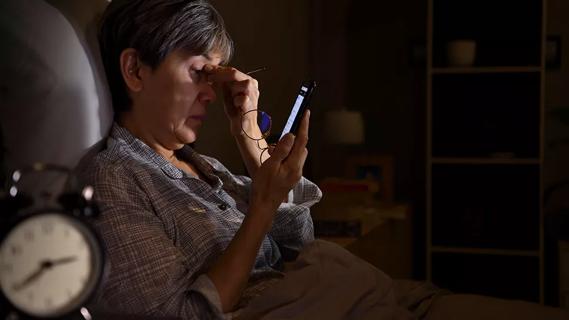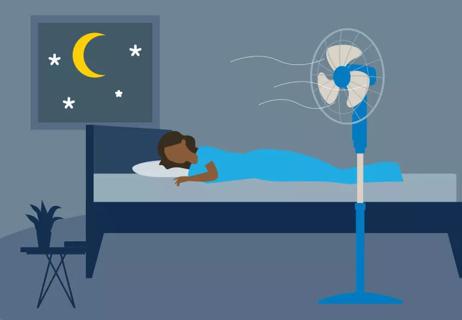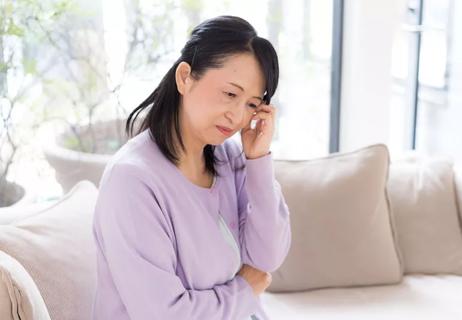Curious about hot flashes, facial hair and voice changes?

Menopause can bring some unwelcome tagalongs: hot flashes, restless sleep, vaginal dryness, bone loss. You may find you’re not thinking as clearly, and struggling to find the words.
Advertisement
Cleveland Clinic is a non-profit academic medical center. Advertising on our site helps support our mission. We do not endorse non-Cleveland Clinic products or services. Policy
If you’re experiencing troubling symptoms at this time of life, talk to your doctor. Some problems can be linked to a hormone deficiency that needs treatment, says women’s health specialist Holly Thacker, MD. She answers menopause-related questions from patients below.
A: Not all women experience hot flashes, but most women flash for a few years. It isn’t good to flash; there’s a lot of changes in brain blood flow. Hot flashes should be treated, and we have great hormonal options that are safe and effective. We have non-hormonal options too, so you should not suffer.
A: It’s a great question because many women, up to one in three, have had hysterectomies, so they don’t have a bleeding pattern.
Starting in your late 40s, ask your physician about doing a yearly hormone test for levels of estrogen and SFH (follicle stimulating hormone), which is involved in helping women release eggs. These will help determine if you’ve gone through menopause.
You need to know because once you go through it, your body doesn’t make estrogen anymore. Half of women lose bone and half to up to 70-80 percent can have changes in the vagina and bladder. So even if you don’t have hot flashes, you want to know what your hormone status is.
Advertisement
A.: Yes it can. If you’re an opera singer who makes your living with your voice, you don’t want to lose that upper register. When women go into menopause, they lose estrogen, but they still usually make the same amount of testosterone. So the ratios change and their voices become a little more masculine.
This is why some women have a deeper voice, a few chin whiskers and a little bit of a receding hairline. If it’s a concern, it’s easily treated as long as we balance out the hormones by replacing some of the estrogen.
A: It depends. It certainly could. Growing facial hair also could be genetic. Some women just tend to have more hair. If you have this symptom, it’s a good reason to see your physician to have your adrenal hormones, testosterone, estrogen and SFH levels checked. Luckily, we have hair removal creams and electrolysis. So there’s a lot that can be done cosmetically.
A: I recommend that you keep your bedroom to about 65 degrees. Keep it cool and comfortable. Avoid caffeine and spicy foods. Also, keep in mind that not all hot flashes are caused by menopause; they can happen as a result of thyroid disorders and other conditions or other medications. So it’s really important to get evaluated.
A: Generally, a thyroid condition won’t mask hot flashes, but if the thyroid isn’t functioning properly, it certainly interacts with other hormones in the body. Many women who are on certain anti-anxiety/antidepressant medications, whether for pain, migraine or fibromyalgia, don’t experience hot flashes — and then they think, “Oh, I’m fine.”
But they don’t realize that maybe their levels are low, and they’re losing bone, or their skin and hair might be changing and other tissues may be affected. So that’s why it’s complicated, and why it’s important to get evaluated.
Advertisement
Learn more about our editorial process.
Advertisement

Reaching menopause very early raises your risk of certain health conditions

Hormone changes can definitely leave you tossing and turning at night, but help is available

Losing menopause weight may take more effort, but it’s doable

A natural part of aging, there are typically three stages of menopause

Stay away from over-the-counter aids unless your doctor specifically recommends them

Lifestyle changes like diet modification and stress management can go a long way

If you’re feeling flushed and nervous, menopause could be the link

This ancient herbal supplement isn’t just a recent trend

Type 2 diabetes isn’t inevitable with these dietary changes

Applying a hot or cold compress can help with pain